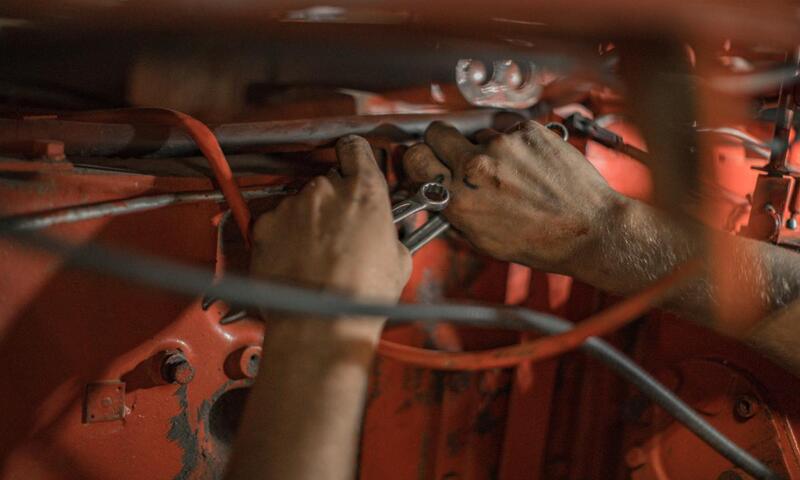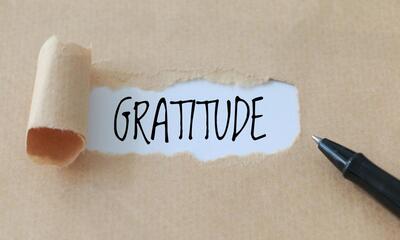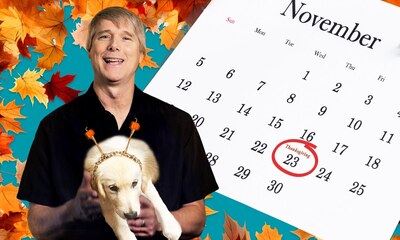Is Your "Check Engine" Light On?

Do you feel tired and overwhelmed? 2020 presented plenty of challenges that are going to take time to recover from. In today's blog, Biola professor Matt Williams offers 7 tools to help you "check your engine" to assess your well-being.
As we start a new year, I’m wondering if your “check engine” light is on—not the check engine light in your car, but your “check engine” light.
So many of us are exhausted and unmotivated as we begin 2021, and this exhaustion affects our relationships with family, friends and co-workers. It is important to pay attention to our own well-being so that our relationships don’t suffer.
I worked as an engineer for General Motors after college, and a car’s “check engine” light is one of the best inventions ever. The check engine light tells you when to check the oil, when to change filters, when there is a problem inside of the engine. Before your car runs into a major problem, the function of the check engine light is to avoid these major engine catastrophes.
Don’t you wish that God would have placed a “check engine” light right in the middle of your forehead? Every time that you pushed yourself too hard, burned the candle on both ends, or added too much stress to your life, your “check engine” light would illuminate. Before you burn out, before you crash, before you have major health issues, before severe anxiety or depression, your “check engine” light would illuminate as a reminder that you need to rest and take care of yourself. This human “check engine” light would help us to avoid major problems.
You probably change your car’s oil periodically, right? Don’t treat your car better than yourself. Isn’t it time, as we begin a new year, to take some time and see how we are doing? The need to know how we are doing has never been more important than it is right now. 2020 was one of the toughest years in recent history, with Covid, death, suffering, loneliness, racism, protests, unemployment, and political divisions. Numerous articles are showing the tragic effects of 2020: increased loneliness, spiking anxiety, depression and suicide rates, financial difficulties, etc. So here is the question: If you had a “check engine” light on your forehead, would any of these difficulties cause your check engine light to go on? Are you aware of how you are doing? Is your “check engine” light on?
I wish that I had a “check engine” light on my forehead. It would have saved me from some miserable experiences. Twice in my life, I have pushed myself to the point of extreme burn out. Twice! You would think that I would have learned after the first time, but…nope. As a result of not paying attention to my “check engine” light, I experienced severe exhaustion and anxiety...twice. I don’t want you to experience these terrible things, so I would like to offer some advice.
What can you do to keep your “check engine” light from going on? Here are a few practical things you can do:
1. Take a self-inventory. How are you doing—really? Take some time in a quiet place to do a full inventory of how you are feeling: physically, emotionally, spiritually. Spend time in prayer, asking the Holy Spirit to help you to do a truthful inventory. It would be also helpful to ask a trusted family member or friend to give you honest feedback.
2. Slow down. The principle of a sabbath rest is biblical. God designed our bodies to rest. For some reason, though, most of us think we will get bigger heavenly crowns by working harder. It is almost a badge of honor to always say, “I’m so busy;” or, “I’m so tired.” Work is good, but overwork is not good. In fact, overwork is dangerous to our physical, spiritual and mental well-being. Take time to rest each day, week, and month.
3. Do an electronics fast. It is becoming clearer each year how threatening our smartphones are to our mental health. Netflix’s new documentary, The Social Dilemma, shows the effects of excessive social media on anxiety, depression and suicide. There is a clear addiction goal of the programmers of Facebook, Instagram, and other social media sites. How can we fight this? We need to take a break from our smart phone. Set it aside for a few days; don’t take it to the dinner table; don’t take it to the bedroom. It will be difficult at first, but it will be good for your mental health to break these addictions.
4. Maintain your relationships. Although it is harder to maintain relationships during Covid due to social distancing, it is still important for our well-being to stay in touch with people. Work it into your schedule to interact with friends that build you up and encourage you. It is easy to meet in a park or a backyard for lunch and still social distance.
5. Practice gratitude. Psychologists are finding that the practice of gratitude, or giving thanks, increases our levels of happiness and well-being. For two years, before I got out of bed, I paused and thanked the Lord for three things. You might try having a time of gratitude prayers, keep a gratitude journal, or write a thank-you letter to a friend. There are many options to increase gratitude in your life, and all of them will increase your happiness.
6. Walk in nature. There is also clear evidence from psychologists that being outside and seeing grass and trees increases our happiness and reduces stress. Not only does exercise help us, but seeing greenery helps us. Try incorporating a daily walk into your life pattern.
7. Remember to breathe. Jeffrey Schwartz, a psychiatrist at UCLA, teaches helpful breathing techniques on a Biola University youtube video. It seems like counting from one to four as you breathe and pay attention to your breath would not make a difference, but over time, this simple practice teaches us acceptance and reduces stress and anxiety. I have practiced this breathing technique for many years.
If you want to read some books on these topics, here are three: John Mark Comer, The Ruthless Elimination of Hurry; J.P. Moreland, Finding Quiet: My Story of Overcoming Anxiety and the Practices that Brought Peace; and Amit Sood, The Mayo Clinic Guide to Stress-Free Living.
A few years back, there was this brilliant television commercial for oil changes. The ad recommended that you spend a little bit of money on an oil change “now” in order to avoid a large expense from a major engine breakdown “later.” The ad said, “You can pay me now, or you can pay me later.” That is so true, isn’t it?! Just like a car, if we ignore the signs that our lives are becoming stretched too thin with too much stress, more damage could come. I am afraid that some of us will face major life breakdowns in 2021 if we do not learn to pay attention to our “check engine” light by slowing down and putting into practice the seven things mentioned above. I hope that you take some time as 2021 begins to do a full inventory of how you are doing, and put into practice some of these suggestions.



